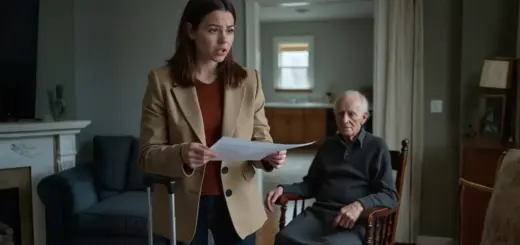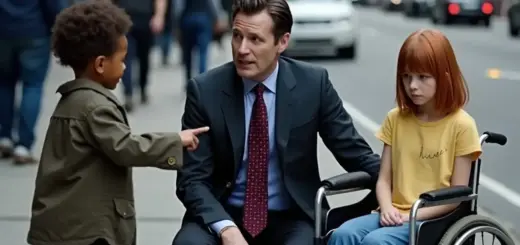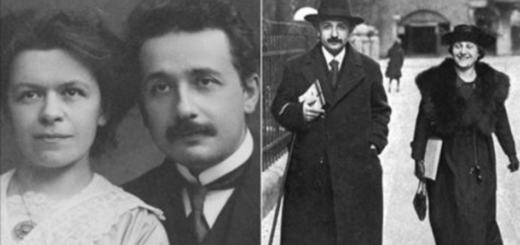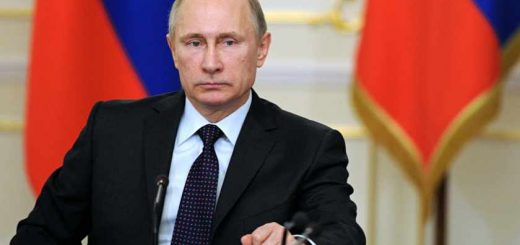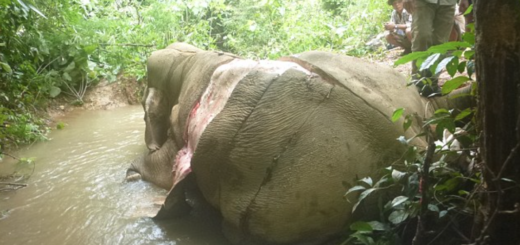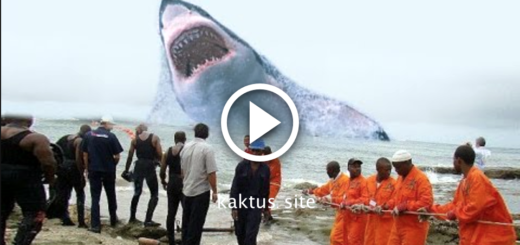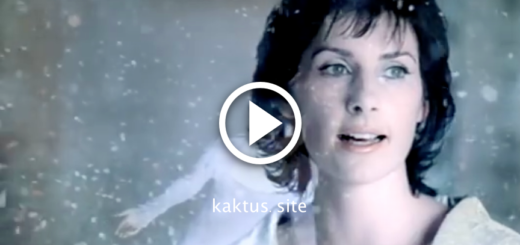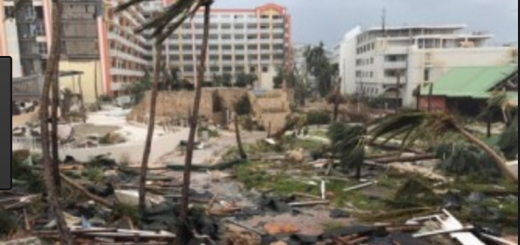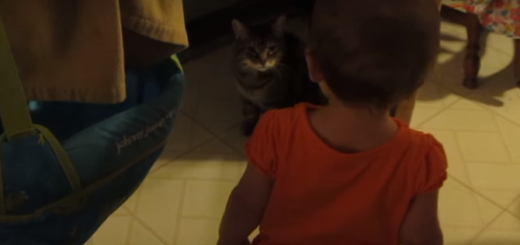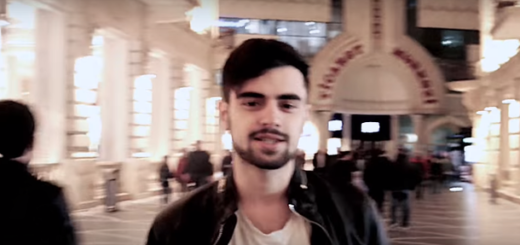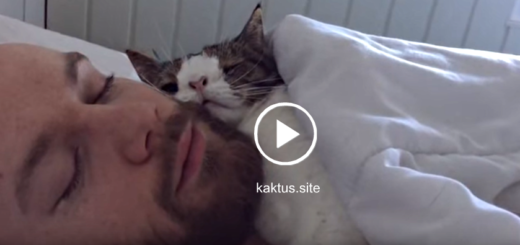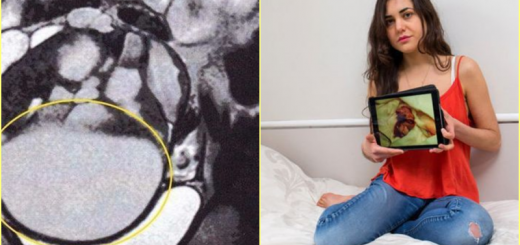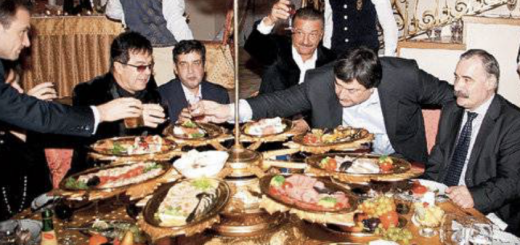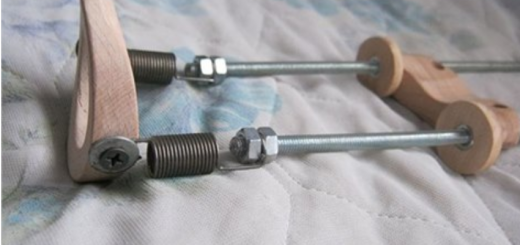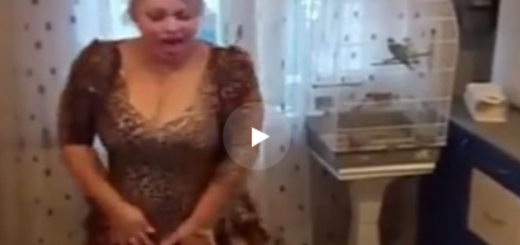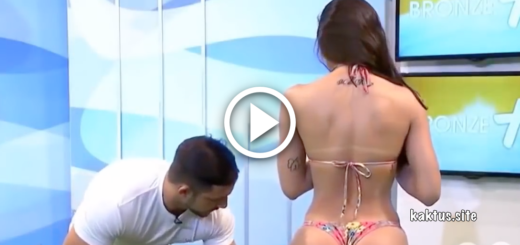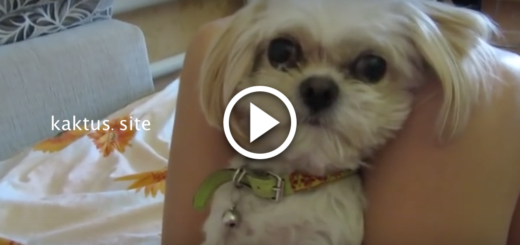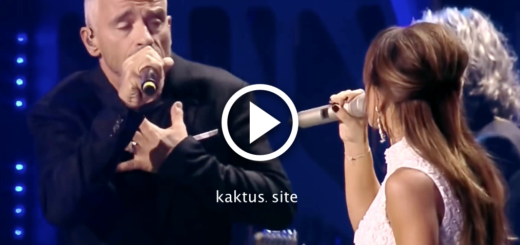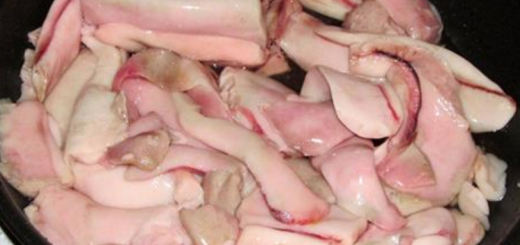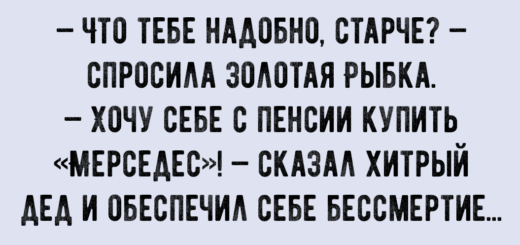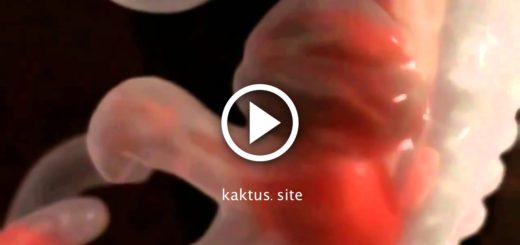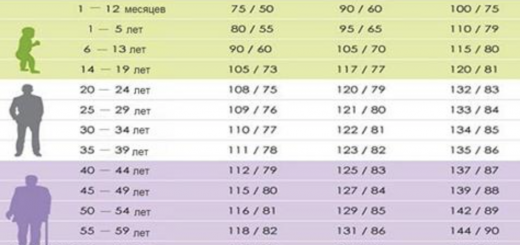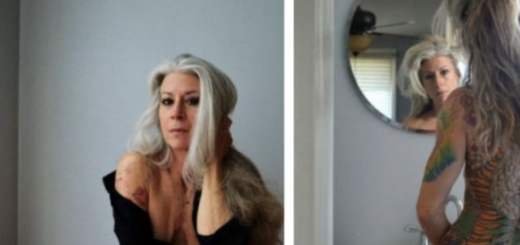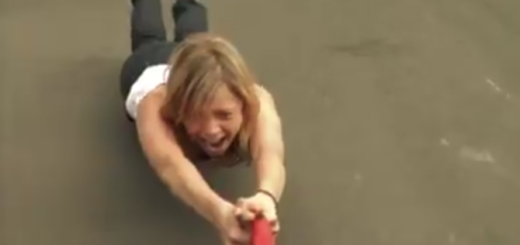At first, nothing happened. Then, with a soft pop, the panel gave way, revealing a hidden door. My breath caught in my throat. Behind it was a narrow cavity, not large enough to be a room, but deep enough to hold something. I reached in and pulled out a dusty box. It was heavier than it looked.
Inside were files, letters, and photographs, and none of them were mine. There were photos of Michael with people I didn’t recognize—a woman with blonde hair, smiling beside him in a park, kissing his cheek at a beachside cafe. There were children, too, a boy and a girl who looked to be about eight and ten. There were letters signed «Jonathan E.» (his middle name was Edward), driver’s licenses with his face but a different name, receipts from places he had never told me he’d been, airline tickets, a key to a storage unit. I sat down hard on the cold concrete floor, the box shaking in my lap.
He hadn’t died. He hadn’t disappeared. He had started over. Without me. The grief I thought I had buried years ago roared back with a new and monstrous face: betrayal. My tears burned this time, not from sadness, but from rage, from shame, from the hollow, crushing realization that I had mourned a man who had simply walked away and kept on walking. For twenty years, I had lived in the ruins of a story that wasn’t even true. And now, sitting there in the shadows, with the evidence in my lap and the suffocating silence all around me, one thing was suddenly, terrifyingly clear. Michael hadn’t vanished; he had hidden. And I was finally going to find out why.
The box sat on my dining room table for three days. I didn’t touch it again right away; I couldn’t. Every time I walked past it, I felt as if it were pulsing, as if the truth contained within it were breathing, waiting. I wasn’t ready to open it again, but I also couldn’t bring myself to put it away. It remained there like a wound I couldn’t bandage, a wound that refused to close.
The first night after finding it, I didn’t sleep. I lay awake with the bedroom light on, my body curled toward the empty side of the bed. I kept expecting to feel anger—sharp, loud, blistering fury—but it didn’t come. What I felt instead was a grief that was deeper than I thought possible. Not grief for Michael, not anymore, but for the version of myself that had loved him. The woman who had waited, begged the universe for an answer, mourned. The woman who had questioned her own worth every single day for twenty years, wondering if she had done something wrong. I had been loyal to a ghost, and worse, to a lie. And now, sitting with that box of proof, the spell finally broke.
Something inside me shifted, not like a bolt of lightning, but more like a slow, rolling earthquake. It was quiet, but it was permanent. The next morning, I woke up and didn’t cry. I got dressed, not in my usual sweatpants, but in a pair of jeans and a crisp white shirt I hadn’t worn in years. I looked in the mirror and barely recognized the woman staring back at me. She looked tired, yes, but there was something else beneath the surface, a steadiness I hadn’t seen in decades.
I poured a cup of coffee, sat down at the table, and finally opened the box again. This time, I didn’t flinch. I studied every document: letters from a bank account I didn’t know existed, a lease agreement for an apartment in Minnesota signed with a name that wasn’t quite his—J.E. Garrison—pictures of birthday parties with children who looked too much like Michael to deny. One photograph made my breath catch in my throat: him holding a toddler in his arms, smiling. The child had his chin. I hadn’t just been erased. I had been replaced.
But instead of letting that realization hollow me out again, I felt a strange sense of calm wash over me. Because now I knew. I hadn’t failed him. He hadn’t been broken. He hadn’t disappeared into thin air or fallen prey to depression or tragedy. He had made a choice. He had chosen to walk away, chosen another life, chosen to let me believe he was dead rather than offer me the simple dignity of a goodbye. And that choice no longer had any power over me.
I began to see things differently, not just about him, but about myself. I had spent two decades dimming my own light, convinced that I had somehow driven him away. I had become small, quiet, cautious. I had built a life out of silence, walking carefully through each day as if the ground might crack beneath me. But now I realized that I was never the one who needed fixing. Michael had been cowardly, dishonest, and weak. And I was still here. I was still standing.
That realization came with an unexpected surge of strength. I stood up from the table, walked to the hallway closet, and grabbed the box of my things he had packed away all those years ago. My old raincoat, the scarf Jessica had knitted for me, the gardening gloves he once said made me look like a character from a novel. I unpacked them. I hung the coat on the hook by the door. I wrapped the scarf around my neck. And I went for a walk.
The air outside felt different, sharper, as if it had been waiting for me. I walked past the overgrown hedges I hadn’t trimmed in years, the neglected mailbox, the neighbors I had avoided. I nodded at the Andersons from across the street. They stared for a second, surprised, then waved back. I kept walking, down the block, around the corner, toward the little coffee shop Michael and I used to visit every Saturday. I didn’t go in, not yet. But I stood outside and stared at my reflection in the window. And for the first time in years, I saw a woman who was coming back to life. Not because of Michael, but in spite of him.
I didn’t tell anyone what I had found. Not Jessica, not the neighbors, not even the women at the quilting circle I had recently started attending again. From the outside, I was still the quiet widow with a predictable routine. Tea at seven, gardening at ten, grocery shopping every Thursday. But inside, something had awakened, and I had no intention of putting it back to sleep.
I began to prepare, quietly and methodically. This wasn’t about revenge, not even about bitterness. I wasn’t interested in a dramatic confrontation or setting his new life on fire. What I wanted was truth. And control. I had spent twenty years floating in a fog someone else had left me in. Now, I was building a path back to solid ground, one silent step at a time.
First, I made copies. Every photograph, every document, every single piece of Michael’s hidden life that I had found in the basement was scanned and saved to a USB drive. I labeled the folder «House Repairs» in case anyone ever glanced at my computer. Then I printed a second complete set and stored it in a locked drawer in the guest room—the one Michael never liked, the one with the creaky floorboard and the view of the back alley.
Next, I hired a private investigator. Not one of those flashy TV types in a trench coat and sunglasses, but a quiet, sharp-witted woman named Denise who operated out of a modest office downtown. She didn’t ask unnecessary questions. She just nodded as I handed her the folder containing the fake IDs, bank records, and rental agreements.
— I believe my husband is alive. I’d like to know where he is and what name he’s currently using.
Her only response was:
— You’ll have it in ten days.
That night, I slept more soundly than I had in years.
During the days that followed, I made other subtle changes. I met with a lawyer, telling him I was simply reviewing old documents «just in case.» We talked about wills, property rights, and the very specific legal implications of a spouse faking their own death. I didn’t mention Michael’s name, but I saw the flicker of understanding in the attorney’s eyes when I hinted at long-term fraud. He gave me the number for a colleague who specialized in family law.
— When you’re ready, call her.
He said. I nodded.
At home, I cleaned the basement. I mean, I really cleaned it. I organized boxes, donated things I didn’t need, and packed Michael’s old clothes into trash bags without a single moment of hesitation. I found more clues along the way: bank slips stuffed inside old books, a note scrawled on a napkin in a language I couldn’t understand. I kept everything. I cataloged it, filed it away like evidence in a case I was building—quietly, methodically, without a word to anyone.
I also began writing again. Not stories, not yet. Just thoughts, memories, small pieces of truth I had never allowed myself to speak aloud. I filled three journals in the span of a month. Some entries were only a single paragraph. Others were ten pages of raw, unfiltered emotion. I didn’t hold back. I waited for you. You made me question my own worth. You will not define me. That last line, I wrote twice.
And as I wrote, I changed. I started dressing with purpose again, not for anyone else, but for myself. I bought fresh flowers for the dining table every week. I cooked full meals, even if I was eating them alone. I opened the curtains wider, letting the sunlight flood back into the house. The house no longer felt haunted. The memories of Michael still lived there, of course, but they no longer ruled the space. I walked the halls as someone who was reclaiming what had always been hers.
Even Jessica noticed the change. On one of our weekly calls, she said:
— You sound lighter, Mom.
I smiled.
— Maybe I am.
She didn’t press for more information. She never did. But I could hear the relief in her voice.
Ten days later, Denise called. She had an address, a name, and a photograph. Michael, now going by Jonathan Garrison, was living in a two-story colonial in Minneapolis with a new wife, two kids, and a black Labrador named Tank. He was smiling in the front yard, looking for all the world like a man who hadn’t simply disappeared from another life without a trace.
I didn’t feel rage. I didn’t even feel shock. I felt ready. Not to destroy him, but to stand in the truth I had so patiently, so quietly, uncovered. And that, I realized, was its own kind of power. Because while Michael had built a life on a foundation of lies, I was finally living mine, step by silent step, in the light.
Power doesn’t always arrive like a clap of thunder. Sometimes it creeps in like the morning light—slow, steady, and impossible to ignore once it’s there. After Denise gave me the photograph of Michael—or Jonathan, as he was now—standing in his new yard with a family I had never met, I sat in silence for a long time. I stared at his face, at the same tired eyes, the same crooked smile. He was older, a little heavier, a little grayer, but it was undeniably him.
What struck me wasn’t that he had moved on. It was how utterly normal he looked, as if he had never shattered someone’s life, as if he had never driven to the edge of a river and abandoned his entire past without a single word of closure. I didn’t call anyone. I didn’t yell or cry or throw things. I simply slid the photograph into a folder and stood up, my posture straighter than it had been in years.
Something had shifted, and this time it wasn’t inside me. It was inside his carefully constructed world. He just didn’t know it yet.
For two decades, Michael had been the one holding the pen, writing the story of our marriage. He chose the ending. He closed the door. He wrote me out of the narrative. But now, I held the truth in my hands—documented, verified, undeniable—and I knew something he didn’t. He wasn’t untouchable anymore. I didn’t need to scream to reclaim my dignity. I didn’t need to destroy his life to repair mine. All I needed was clarity, and now I had it.
I began taking small, deliberate steps. I updated my will, removing his name and any reference to «next of kin.» I drafted a formal statement of abandonment, which I had notarized and filed with the county clerk. My lawyer helped me start the legal proceedings to have him declared legally alive—not because I wanted anything from him, but because I wanted to reclaim everything he had left me tangled in: the confusion, the limbo, the legal fog of a missing spouse that had clung to me for years. He thought I was still standing in that fog, but I wasn’t. I was on solid ground, and the ground beneath his feet was about to get very shaky.
Meanwhile, I went about my days as usual. I baked muffins for the church bake sale. I helped Jessica pick out baby shower gifts for her best friend. I smiled at the cashier at the grocery store. No one suspected that anything had changed, but everything had changed. One afternoon, I visited the bank where we used to have a joint account.
I calmly presented the documentation showing that he was alive, the evidence of his false identity, and the fact that he had never legally divorced me. The bank manager looked stunned, but remained professional. She thanked me for the records and told me they would forward the case to their fraud department. I walked out of that bank feeling taller. Not victorious, just certain. I didn’t need revenge. What I wanted was for the truth to live where lies had taken root.
The final piece of the puzzle came through Jessica, though she didn’t know it. She called one evening and said:
— You’re not going to believe this, Mom. I got an email from someone named John Garrison. He said he used to know Dad.
I froze.
— Did he say anything else?
I asked, my voice calm and even.
— Just that he came across my name and wanted to check in. Weird, right?
I asked her to forward the email to me. And when I read it—the tone, the language, the awkward warmth—I knew exactly who had written it. Michael. He was trying to circle back. Maybe his curiosity had gotten the better of him. Maybe it was guilt. Or maybe he had sensed something in the air, a tremor in the foundation of the secret life he had so carefully built.
I didn’t tell Jessica the truth, not yet. Instead, I sent him a letter. No return address, just a typed message tucked into a plain white envelope.
I found the box. I know everything. Do not contact Jessica again. You may have left me, but I have finally left you.
No threats, no pleas. Just clarity. I imagined him opening it, the panic, the sudden recognition that the woman he had once erased now stood far outside the reach of his silence. And for the first time, he would be the one wondering what came next. The balance of power had shifted. Not with a bang, but with a truth that could no longer be buried.
It wasn’t rage that brought me to that bench in the park. It wasn’t revenge or spite or even curiosity. It was a need for closure. A word I used to roll my eyes at, but now understood with a kind of sacred clarity. I didn’t want to yell at Michael. I didn’t want to slap him or demand an explanation I knew he could never adequately give. I just wanted him to see me—the real me, the woman he had tried so hard to erase.
After I sent the letter—I found the box. I know everything—he waited six days before responding. A plain email, no subject line, just three short lines of text.
Please let me explain. I never meant to hurt you. Can we meet?
I stared at the screen for a long time. Then I typed back my reply.
One hour. Valley Creek Park. Saturday, noon.
No more.
I chose the location carefully. Not our home, not a place filled with shared memories. I picked a neutral ground, open and public, but quiet enough for the truth to settle between us. The park was halfway between where I lived and where Denise had told me he was now living. I doubted he would tell his new wife he was meeting me. That was fine. I wasn’t there to disrupt his new life. I was there to finish my old one.
I arrived early. The trees were bare, their branches stark against a gray spring sky. A cool breeze carried the scent of wet leaves and distant woodsmoke. I sat on the far end of a bench near the creek, where the path curved just enough that I could watch people approach without being seen first.
And then he appeared. Michael, or Jonathan, as he now called himself. He walked slowly, hesitantly, like someone approaching a crime scene. He looked older than he had in the photograph, and thinner. His hair had gone mostly white. He wore a simple blue jacket and carried a folded piece of paper in his hand—probably a rehearsed speech, something practiced in the mirror. He spotted me and froze. I didn’t move.
After a moment, he walked over and sat down on the other end of the bench, not too close. There was a space between us, the kind of space that used to be filled with warmth. Now it was cold and dense with everything left unspoken. He opened his mouth, then closed it again. I didn’t help him. Finally, he spoke.
— I don’t know how to begin.
I turned to look at him fully for the first time. His eyes were the same. Soft. Cowardly.
— There’s nothing you could say that would undo it.
I said quietly.
— But go ahead. Try.
He swallowed hard.
— I… I was drowning back then. I felt like I didn’t matter. Like I was just going through the motions. Every day felt the same. I didn’t know how to tell you. And then… I met someone. It wasn’t planned. It just happened. And I thought if I stayed, I would end up resenting you, hurting you worse.
— You did hurt me worse.
I replied, my voice perfectly steady.
— You let me think you were dead. You watched me bury an empty coffin. You watched our daughter cry for a man who didn’t even have the courage to say goodbye.
He flinched, as if I had physically struck him.
— I thought it would be kinder.
— Don’t.
I said sharply.
— Don’t you dare pretend this was some act of mercy. This was selfishness, disguised as a disappearing act.
He stared down at the creek, his face a mask of shame.
— I didn’t contact Jessica again. I promise. I just… I thought maybe after all these years…
— I’m not here to reconcile, Michael.
He looked at me again, truly looking this time.
— I’m here because I want you to see what you tried to bury.
I leaned in slightly, not with anger, but with an unshakeable gravity.
— I lived with your ghost for twenty years. I questioned everything—who I was, what I did wrong, whether I had imagined our entire life together. I held a funeral for a man who chose to vanish rather than be honest. But I’ve stopped mourning. I’ve stopped wondering. I am not your wife. I am not your victim. I am me. And I came here today so you would know that I remember everything, and that I am no longer afraid.


